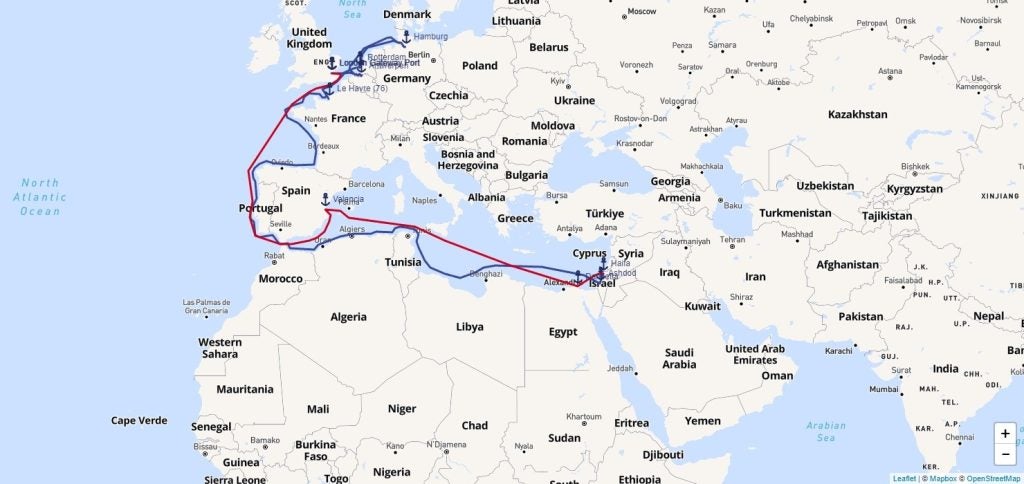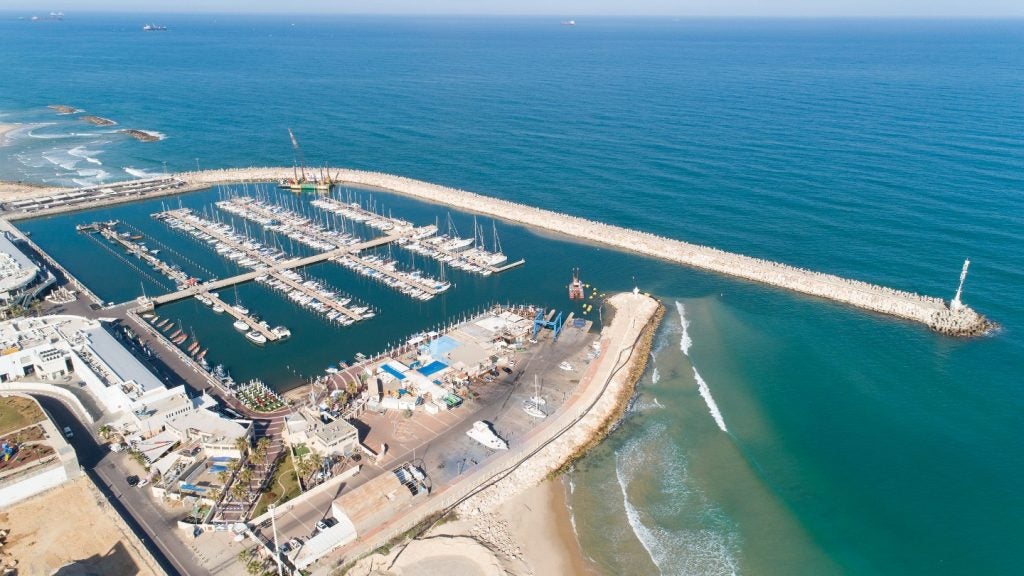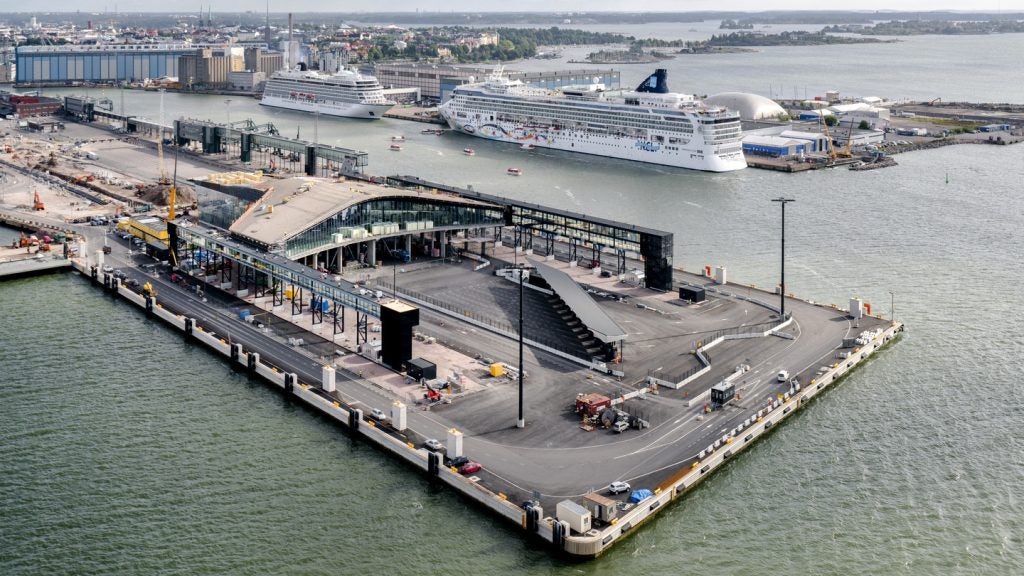A significant drop-off in shipping activity at Israeli ports is threatening food security in the occupied Palestinian territories amid escalating air strikes and the Israel Defence Forces (IDF) preparing for a ground invasion.
On Tuesday (10 October), the World Food Programme (WFP) called for “humanitarian corridors” as it launched an emergency operation to supply food and water into Gaza and the West Bank.
The WFP said more than 800,000 people are “facing dire circumstances” in the West Bank and Gaza Strip, which is one of the most densely populated areas in the world.
Insurance premiums for Israel-bound shipments have risen tenfold due to a squeeze on food supplies and threat of transporting goods into Israel’s ports.
With ships already required to pay a war risk premium for journeys to Israel, logistics and maritime security companies have scaled back operations due to tens of thousands of dollars in additional cost.
The Israeli ports of Ashkelon and Ashdod have been most affected. Previously an unofficial port for food imports into Gaza, Ashkelon has “suspended its regular operations”, said maritime security company Dryad Global told Ship Technology, while Ashdod remains open despite a rocket assault on a nearby power plant.
Humanitarian aid efforts have been further impeded by Israel’s multiple aerial attacks on the Rafah border crossing, Gaza’s only entry point to Egypt not controlled by Israel. Egyptian NGO Sinai for Human Rights said trucks carrying food supplies into Gaza were blocked on entry.
The conflict has so far resulted in more than 2,250 deaths on both sides.
Which Israeli ports remain open?
Ashkelon, a small port city in range of Hamas rockets on Israel's southern coast, is not allowing ships to dock, shipping sources say.
“Based on AIS data, ships [at the Port of Ashkelon] are being redirected to the Port of Ashdod to the north, seen as a safer port,” Dryad Global said. “This mirrors the events of May 2021 amidst the Israel-Palestine tensions.”
Sirens were sounded in Ashkelon yesterday (11 October) as several people were taken to hospital with shrapnel wounds following a rocket attack. Ashdod power plant – in the vicinity of the port – has also been damaged by an aerial assault.
Haifa, Israel’s largest port, remains open and “operational” according to Indian conglomerate Adani, which acquired 70% of Haifa Port earlier this year. Haifa handles 30m tonnes of cargo, but data from MarineTraffic shows a noticeable decrease in shipping activity.
A.P. Moller Maersk and Hapa Lloyd are among the European logistics companies monitoring the situation.
Shipping routes run between two and four times per week between Haifa and the Turkish port of Gemlik, while southern Italian port of Gioia Tauro to Ashdod port sees between one to two routes run weekly, according to data from Fluent Cargo.
Despite being only 22km north of Ashkelon and the Gaza border, Ashdod port is also still open. The port is subject to restrictions on the loading of flammable, explosive or toxic cargo due to the “increased risk from rocket attacks”, according to Dryad Global.
Israeli company ZIM, another prominent goods transporter between Europe and Israel, announced it has offered Israel all of its ships to help with the war effort, the Jerusalem Post reported.

Will Israel and Palestine run out of food?
In Israel, where nearly all food is imported from sea routes, reports have emerged of bare supermarket shelves as residents rush to stockpile supplies in the increasingly likely event of a prolonged war.
Food supplies are expected to be thinly stretched, but aid already flowing in from the US and other western powers should prevent mass food insecurity.
The story is different in Palestine. Despite the EU backtracking on an announcement that it would freeze all aid to Palestine on Monday (9 October), support into the West Bank and Gaza has involved backing for the Hamas regime from Iran and Hezbollah, rather than supplies for Palestinian citizens.
This has not been due to lack of effort. The WFP’s calls for a humanitarian corridor have so far gone unanswered, while Israel continues to block aid from Gaza’s Egyptian border entry point. Earlier today, Israel's energy minister said no humanitarian supplies would reach Gaza until Hamas releases Israeli hostages.
The conflict has also been a reality check for the recently proposed India-Middle East-Europe Corridor (IMEC), a plan backed by the US and EU to transport goods to Europe from the port of Haifa.
Our signals coverage is powered by GlobalData’s Thematic Engine, which tags millions of data items across six alternative datasets — patents, jobs, deals, company filings, social media mentions and news — to themes, sectors and companies. These signals enhance our predictive capabilities, helping us to identify the most disruptive threats across each of the sectors we cover and the companies best placed to succeed.















